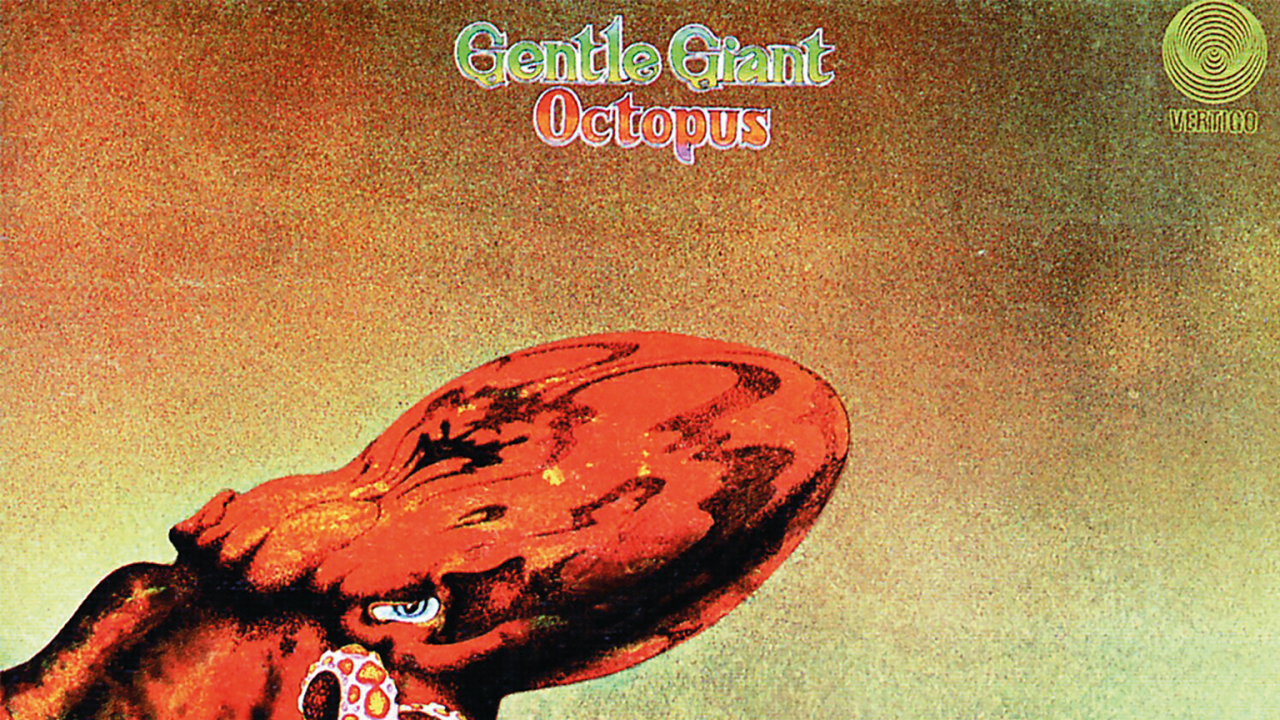In the 43 years that have passed since Octopus was released, even in the eclectic world of progressive music Gentle Giant still stand out as challenging and unashamedly experimental. Though these very qualities probably helped marginalise them at the time, hearing their exquisitely awkward music presented in a new format is a treat for old fans and newcomers alike.
While Steven Wilson’s new stereo mix adds some weight and definition, the real reason for buying this set therefore is the surround sound mix. Last year Wilson’s 5.1 version of 1974’s The Power And The Glory was remarkable, and hearing the sound unpacked and unfurled across several speakers is breathtaking. The band’s penchant for instrumental hocketing and use of interlocking vocal parts (as on Knots) make them tailor-made for a such an expansive format, which allows you to hear the intricate layers and diverse timbres in sharper relief and greater clarity.
Heard across several speakers, their sound is breathtaking.
Transferring Octopus to 5.1 was not without problems. With the original multitrack tapes sadly missing, The Advent Of Panurge, Raconteur Troubadour and The Boys In The Band required Wilson to upmix the stereo masters and create a kind of faux surround. (He’s encountered this problem in other vintage remix projects, such as ELP’s debut and King Crimson’s In The Wake Of Poseidon.) While regrettable, such upmixing is a necessary compromise that at least goes some way to providing listeners with continuity. Alongside the original 1972 mix here there’s also a stereo instrumental-only selection, enabling yet more sifting of this complex music and the ingenuous means of its construction.
Perhaps though the greatest and most novel stroke of genius in this edition comes from the on-screen footage as the music plays: a close-up of a single octopus constantly undulating as it slithers and stalks about its aquarium. Across the endlessly fascinating cephalopod action, text-type messages appear at regular intervals annotating each one of the tracks. During River we learn from Derek Shulman: “This is one of Ray’s melodies with myself lending a little musical hand. It was also a great showcase for Ray’s violin playing.” In the same track Kerry Minnear later chips in: “Varispeed fun with gongs and cymbals. Great blues solo from Gaz!”
Often intimate, humorous and revealing, these asides add an extra narrative tier and bring a wealth of detail to the listening experience that subtly alters both how and what we listen out for in the pieces. It’s unlikely that you’ll hear the album in the same way again.

